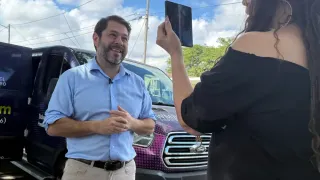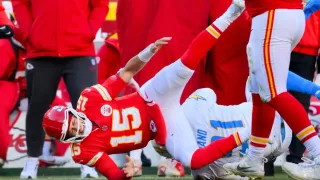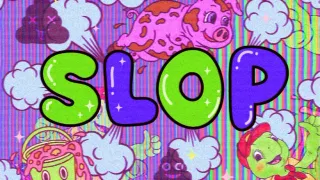May 2, 2023
Review: 'Mama's Boy' is Dustin Lance Black's Personal Cinematic Family Memoir
Brian Bromberger READ TIME: 6 MIN.
It's one of the most memorable Oscar acceptance speeches, given by Dustin Lance Black when he won Best Original Screenplay for the biopic "Milk" (2008). He thanked Harvey Milk for giving him hope to live his life openly as a gay man, fall in love, and one day get married; told gay and lesbian kids they are beautiful creatures of value no matter what anyone says; and said, "I promise you that very soon you will have equal rights federally across this great nation."
It's the moment when Black the LGBTQ activist was born. We are made to realize its importance because we hear the speech twice in the new HBO Max documentary "Mama's Boy," based on Black's 2019 bestselling memoir. This film aims to tell you much more than what it shows you.
The other key moment, again highlighted more than once, is the next morning when Black's mother Rose(anne) Bisch, who accompanied him to the Oscars wearing a white ribbon supporting marriage equality, asked him how he intended to keep that promise because a promise "is a sacred thing."
Outside of Black, Bisch is the prime focal point of the documentary. There's little doubt she was both a remarkable woman and a formative influence/inspiration for Black. However, anyone wanting to learn why Black became a screenwriter and how that career led him to win an Oscar won't be satisfied by this documentary.
On a Mission
From the outset we are informed Bisch was a resilient, courageous fighter, starting from her birth to sharecroppers in rural Louisiana, when, as a toddler, she contracted polio. Informed she would spend the rest of her life in a wheelchair, Bisch, equipped with leg braces, struggled to walk on crutches. She attended her prom, though no one asked her to be his date. Wanting to be a doctor, she attended university on a scholarship.
Converted by missionaries to Mormonism, Bisch's first husband was a missionary. She gave up her medical career and, despite having been told if she got pregnant she would die, she birthed three sons. Her husband abandoned the family, and husband number two was physically abusive to her and the children. She eventually divorced him when, as an Air Force Sargent, he was sent to Korea. The Mormon Church gifted the family money to survive. Husband number three was a keeper, also in the military. She studied to become a medical technologist.
Into Activism
Black sensed by age six he was gay. But having been brought up Mormon and worried about going to hell, he remained in the closet. For most of his early life, his mother was Black's only and best friend. In college he pushed his BBF Ryan to come out, then told him being gay might end their friendship. "I was treating people poorly. If you hate yourself, you will treat other people like shit. You turn into a monster."
At 21, he finally came out to his conservative mother, who struggled to reconcile her religious beliefs with Black's sexuality. She relented when, after Black moved to LA to enroll in the UCLA Film School and on a rare visit, she met his gay friends at a party and opted to put her son ahead of Mormon doctrine, accepting him unconditionally.
Her support and encouragement, coupled with his command and eloquence as a speaker, led Black to suspend his screenwriting career for several years and fight for marriage equality by overturning California's Proposition 8 (which banned same-sex marriage). When he discovered Prop 8 was primarily financed by Utah's Mormons, he met with church leaders in Salt Lake City to build bridges with people harboring different beliefs and politics.
He reconciled with his extended family in Texarkana. Black's elder brother, Todd, came out after years of anguish, but died of cancer in 2012. There's a very brief interlude concerning Black meeting his husband, British Olympic diver Tom Daley, whom he married in 2017 and with whom he parents two children.
Bisch died of breast cancer in 2014. We are told repeatedly that she fought her whole life and that she was a brave, resourceful woman, but it gets tedious to hear the same affirmation parroted ad nauseum. The film lacks spontaneity since it's so heavily scripted, which also blunts any explosion of raw emotions where you might expect them.
Standard Structure
"Mama's Boy" revolves around one-on-one interviews with Black, who also serves as the principal narrator. This configuration might cause some critics to view "Mama's Boy" as a vanity project, but this charge seems unduly harsh, as Black is trying to convey how the values instilled in him by his mother (and, indirectly, through the Mormon religion) shaped him into a quasi-iconic queer activist.
Yet, the narrative seems too one-sided, with just one-sentence references to previous projects before "Milk," (barely highlighted) such as a movie on AIDS educator/"Real World" star Pedro Zamora and the HBO polygamy mini-series "Big Love." The creative element that made Black into a captivating storyteller is lacking.
It's a shame that director Laurent Bouzereau stuck with the standard documentary structure, because this is one instance where monkeying around with past and present timelines, and a more adventurous parallel narrative juxtaposing Black and his mother, could have yielded big creative dividends, leading to a more engaging, less stilted result.
However, even with these criticisms, the documentary has its compelling visceral moments, especially when Black is addressing LGBTQ audiences, as noted by talking heads former president of HRC Chad Griffin and executive director of Equality Utah Troy Williams.
Also, Black's message that open dialogue and sharing stories are essential tools for changing hearts, promoting empathy, and healing wounds, seems particularly timely in these days of partisan divisive warfare.
"Mama's Boy" works more than it fizzles as it showcases two extraordinary lives. Watching this film with Mom could be the ideal Mother's Day gift as a celebration and tribute to an encouraging, empathetic parent.
Help keep the Bay Area Reporter going in these tough times. To support local, independent, LGBTQ journalism, consider becoming a BAR member.






